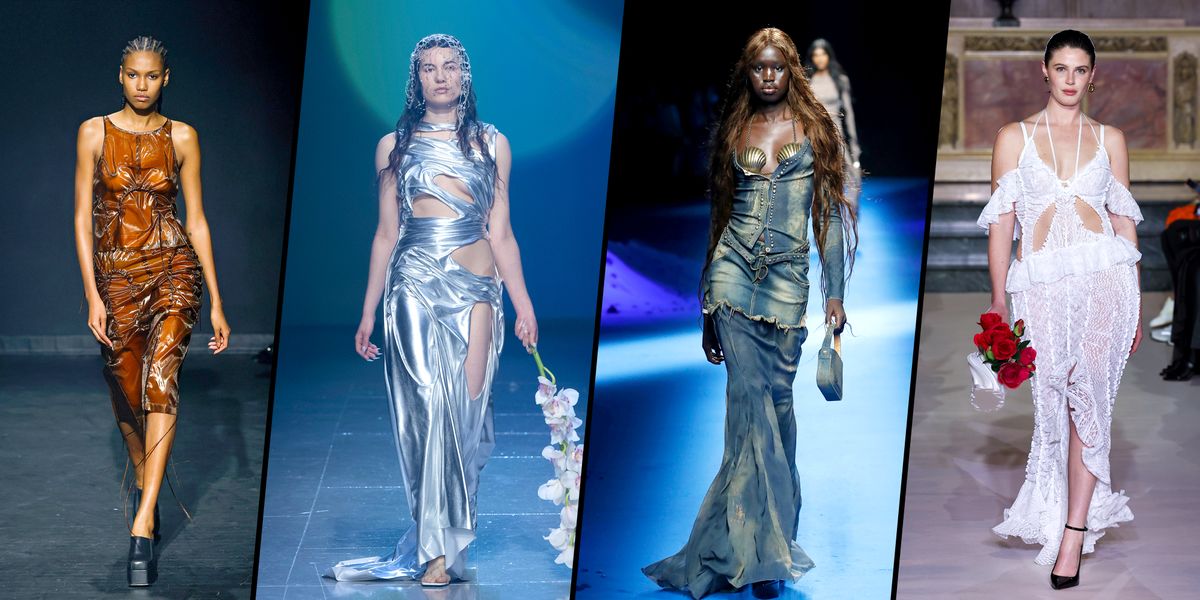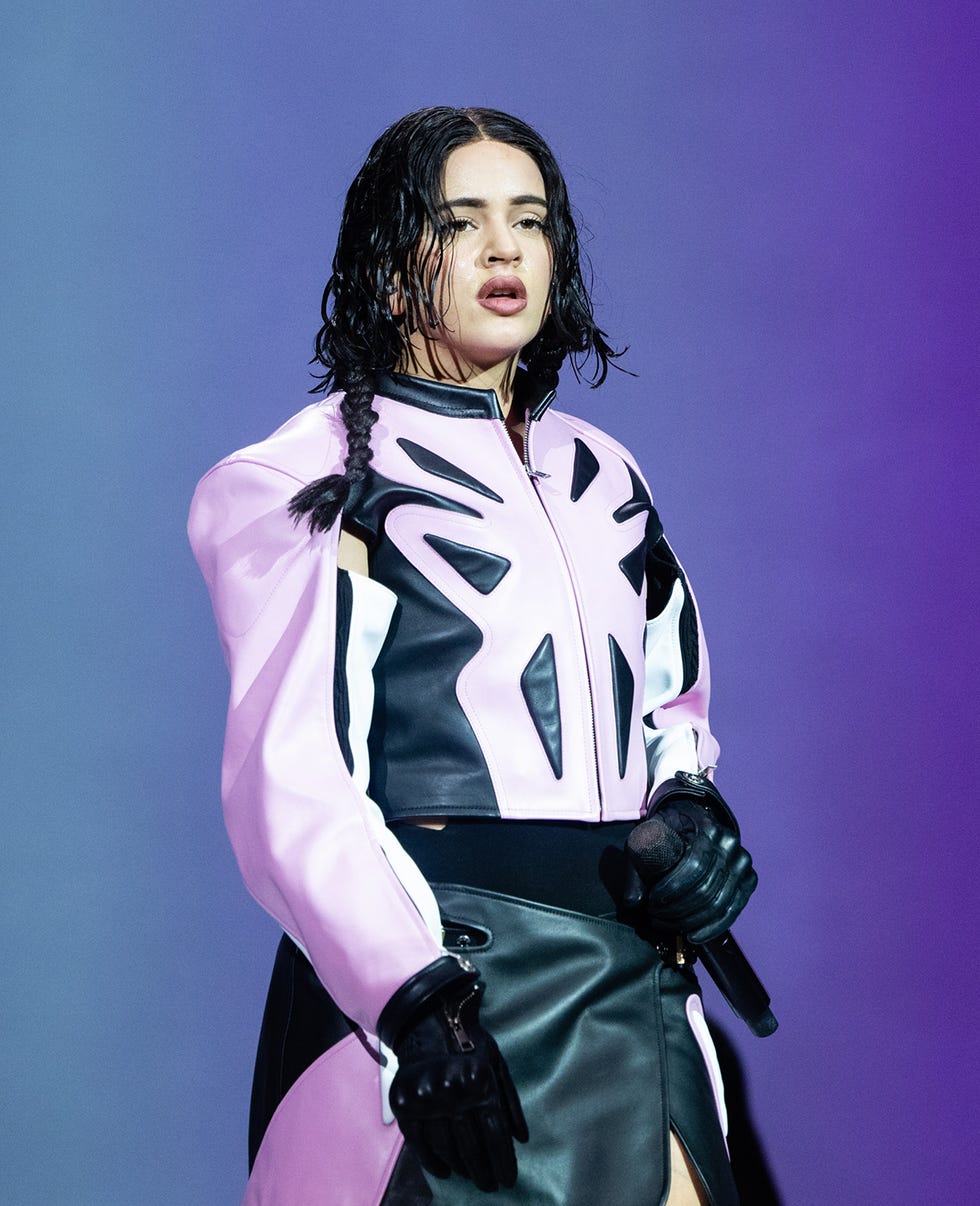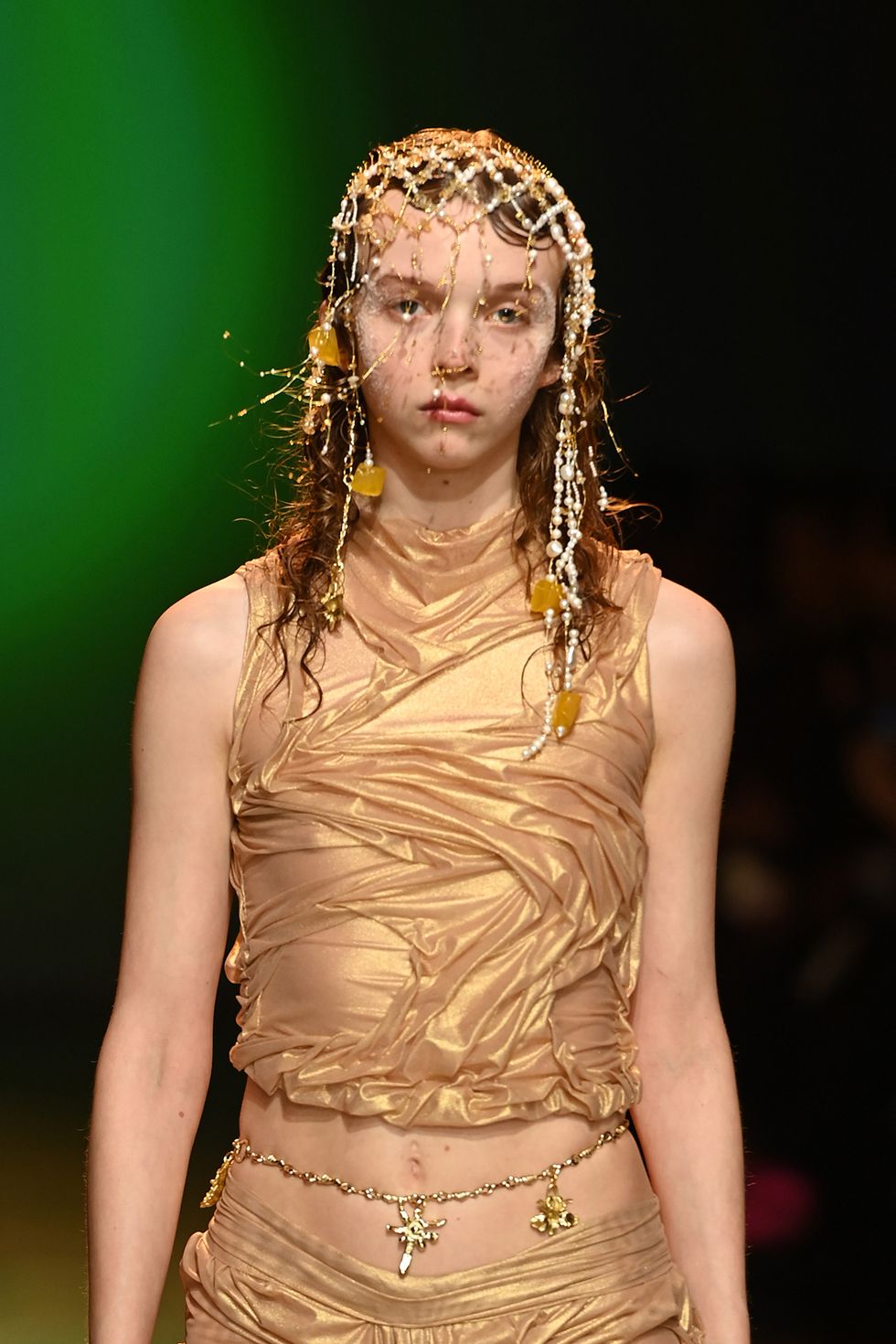There’s this look I can’t get out of my head lately. It defies neat categorization. Drenched. Asymmetrical. Slightly disheveled but in a considered, intentional way. SZA does a version of it in her music video for “Shirt” (the one where she and LaKeith Stanfield cycle through disguises and spray gunfire on everyone they meet). It’s the way she looks in the story’s final act; after he betrays her and she exacts revenge, enlisting a small kitchen crew to—I can only assume—butcher him while she shoves his car into the sea.
Pause here, seven seconds into minute three of this Pulp Fiction-esque drama. Her skin shimmers softly. Her hair sits long and loose around her shoulders. Her dress is a lightweight ribbed knit the color of bone, and all the hems are raw, winding, and tattered. It’s as if she’s just emerged from a violent tide and taken a moment to sun on the shore. A single strand of cowrie shells dangles near her right ear as she moves through port de bras. The trawler she’s standing on glides off into a rainbowed horizon. Call it shipwreck chic.
Looking this way, SZA radiates a cool, unbothered conscience I thought could only be unlocked by an ascetic life of material renunciation or bottomless generational wealth. It’s not just that she appears calm or free or even triumphant that this exhilarating but toxic relationship is finally behind her, but a rare combination of all three. It’s a look of hard-won serenity that doesn’t hide the hell she passed through to get to it.
There’s a breezy messiness to the shipwreck chic aesthetic. The way Rosalía’s penchant for wet-looking hair can sometimes make her look hurried but unruffled, like she ran straight from the shower or was caught in a storm on the way. The difference between “I’m sorry I’m late,” and “Thank you for your patience.” I see it, too, in Caroline Polachek, crawling through the cover of Desire, I Want to Turn Into You in a stained slip dress, or sweating through her eyeliner and satin hair bow on the beaches and subway platforms of “Welcome To My Island.”
It’s all over the runways, too. Both spring and fall. Paired with satin skirts at Marni and sheer smocking at Ester Manas. Warped necklines at Eckhaus Latta and clamshell bras at Blumarine. The throbbing core of Di Petsa’s remarkable design practice, which transforms reams of mesh, strategically gathered and handsewn to create the illusion of moisture, into an entrypoint to examine “our relationship with water.” (The human body is, after all, more than 50 percent water.)
Describing the genesis of her signature wet-look dresses, Petsa writes, “If you cry in public you must hide it. If you sweat in public you must hide it. If you breastfeed in public you must hide it. […] I am [analyzing] this censorship, in regards to social behavior and proposing that the way we perceive our bodily waters has an immediate connection to how we misuse and relate to oceans.” As temperatures and sea levels continue to rise, it’s not hard to also see the practicality in accepting this dewy, damp look—a cosmetic defense against rising humidity in a warming world. Her designs are provocative and render their wearers (among them FKA Twigs, Bella Hadid, and Lizzo) at once a more divine and more human version of themselves.
The look I’m describing isn’t new. It’s ancient, really. It owes as much to Homer and Botticelli as it does to Y2K-era pop (see: Mariah Carey’s “My All,” Shania Twain’s “You’re Still The One,” Shakira’s “Whenever, Wherever,” and Destiny’s Child’s “Survivor”). But there is a unique appeal, in this moment, to looking this way. An authenticity. A shirking of contemporary tenets of put-together-ness. A rejection of illusory perfection. It feels like the truth.
Shipwreck chic springs from tensions between reality and fantasy, the same ones that might inspire, for instance, MSCHF’s Big Red Boot, but takes flight in the opposite direction. Instead of leaning into digital farce and absurdity, this soaked, frayed, half-destroyed look that smells like skin and ocean spray pulls back, aiming to expose the mess that lurks largely unseen in the process of curated expression. The sunken ruins of blemishes edited out and outtakes never posted, of pre-op and pre-app bodies. It looks backward to medieval mythmaking, to sirens and storms that hit like plagues, to make sense of our time in terms that feel more viscerally real and elementally human than perfectionist futurism.
The vibe is ripped seams and broken nails and sweating through your blowout. Blood stains on your shirt, comfort in your sins. The carnal elegance of not just surviving the shipwreck, but embracing all the ways you might actually be one yourself.
Gaby Wilson is a writer and journalist whose work has appeared on HBO’s _VICE News Tonight, MTV, SSENSE, and more. She grew up in five different countries and six different states and now lives in Brooklyn, New York. Follow her on social @gabriellewilson and read more of her work on gabywilson.com.


